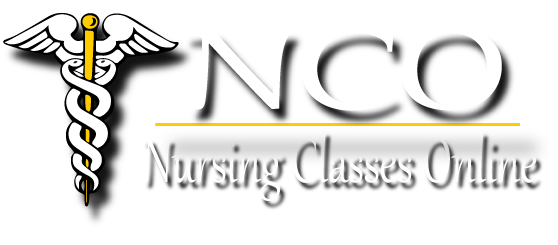BSN Degree
 The Bachelor of Science in nursing or BSN degree is a type of academic degree that can be completed in a four-year program from an accredited nursing school. This type of degree is concentrated in the sciences and in the principles of nursing. The student who graduates from a BSN degree program has received training in certain areas of nursing after two years in an associate degree program or after four in a standard college program. A graduate from one of these programs is able to sit for a licensing examination to receive a license as a registered nurse.
The Bachelor of Science in nursing or BSN degree is a type of academic degree that can be completed in a four-year program from an accredited nursing school. This type of degree is concentrated in the sciences and in the principles of nursing. The student who graduates from a BSN degree program has received training in certain areas of nursing after two years in an associate degree program or after four in a standard college program. A graduate from one of these programs is able to sit for a licensing examination to receive a license as a registered nurse.
What is a BSN Degree?
There are several different types of work settings that may interest a BSN graduate. Hospitals and residential health facilities often hire nurses to assist with patient daily care and with activities of daily living. The residential patients may need help with personal care activities. A BSN degree holder may be employed by medical private practice offices. The duties of a private nurse are similar to those that are expected in a hospital setting. A nurse with this degree and certification can administer some patient care and can assist with other types of direct patient treatments. Record keeping is always important for the nurse in any of these medical settings.
Nurses are hired to work with medical patients and with patients with disabilities. This kind of patient care may consist of record and chart notation, medication monitoring, assisting with the administration of lab tests, and assisting the patients with activities of daily living. The mentally ill need similar medical care that can be administered or monitored by a BSN nurse.
What Can I Do With A BSN?
A graduate with a BSN degree is employable in additional settings. These additional settings include work in an administrative role, research and teaching positions, and consulting contracts with independent employers. Most importantly, you are qualified to become a Registered Nurse.
Curriculum Goals
There are several goals that are critical for a graduate to understand and accomplish. These curriculum goals include the following:
1. Nursing care can be complex, and a nursing student should understand and promote this type of critical patient care understanding.
 2. Leadership is often required by a nurse within many different medical settings. The nursing student should acquire these skills and be able to take on a leadership role.
2. Leadership is often required by a nurse within many different medical settings. The nursing student should acquire these skills and be able to take on a leadership role.
3. High quality care is expected by an employer, and patient safety is critical in all positions that a BSN nurse accepts.
4. Safe and effective nursing care is important, and the tools that are needed in certain medical positions are presented throughout a BSN degree nursing program.
5. Advocacy for equitable health care is a part of any curriculum for the nursing student. Respect for diversity and human dignity are a part of a nursing degree program as well.
6. Health promotion and disease prevention strategies are addressed.
7. Critical thinking and sound judgment are important for a nursing student. The nursing employment position will require a certain level of psycho motor skill as well. The BSN student may be required to work with patients that are of all backgrounds and of all ages.
Quick Overview
There are nursing license credits that are acquired as a student completes certain hours within a Bachelor of Science nursing degree. The curriculum for a BSN degree may include the following course work:
1. A general education core group of courses for this degree may include courses in personal technology and report writing. Certain principles of economics are taught, and there is an overview of world literature included in this curriculum as well.
2. A BSN includes a number of core courses that are in the sciences. These core science courses include anatomy, physiology, nutrition, chemistry, and human growth and development.
3. Nursing courses are included within this program that include professional nursing, information management and health care, nursing assessments, physiology for nurses, and holistic nursing. Palliative care strategies are discussed for the various medical applications and settings.
Bachelor of Science in Nursing Degrees
 A Bachelor of Science in nursing has several applications. This type of degree may be a part of a two year associate degree program. There are nursing programs that are a standard four year program as well. Licensing certification may be gained after the completion of a certain number of core courses and nursing courses. A basic nursing curriculum includes personal technology training, advanced training in several of the health sciences, and training in specific nursing applications. The advanced sciences include anatomy courses and physiology training.
A Bachelor of Science in nursing has several applications. This type of degree may be a part of a two year associate degree program. There are nursing programs that are a standard four year program as well. Licensing certification may be gained after the completion of a certain number of core courses and nursing courses. A basic nursing curriculum includes personal technology training, advanced training in several of the health sciences, and training in specific nursing applications. The advanced sciences include anatomy courses and physiology training.
Nursing is frequently a community service, and a BSN nurse is trained in the many community program applications that may be necessary. Community awareness and diversity are taught as basic principles in the nursing applications curriculum. What is a BSN degree? Effective and compassionate patient care are critical applications for a bachelor of science in nursing degree program. Global health promotion programs are important as well.
Holders of a BSN degree may decide to go back to nursing school through a bridge program in order to earn their Masters of Science in Nursing (MSN) or get their Doctorate of Science in Nursing. This opens up a wide range of other positions and opportunities that can be considered.









